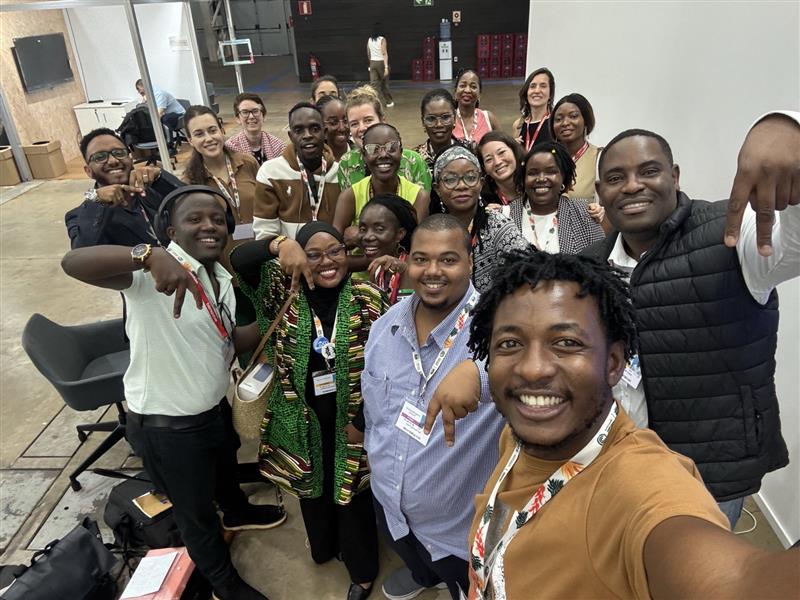A couple of days ago I arrived in Belem, in the Brazilian Amazon, where the world’s biggest annual climate change conference – COP30 – has just kicked off.
It’s inspiring to be here with activists from across the globe who are demanding that our leaders act with ambition, justice and urgency.
COP30 is this year’s most significant moment for lifting climate ambition and securing justice for communities bearing the brunt of the climate crisis. Marking ten years since the historic Paris Agreement, this conference has brought tens of thousands of people together, from governments, civil society, and big business to those from the climate frontlines.

ActionAid’s global team arrives at COP30, along with youth representatives and partners from around the world.
What is ActionAid doing at COP30?
Our ActionAid team will be here demanding justice for women on the frontlines. Over the coming days I’ll be joined by colleagues and partners from around the world, including Flora Vano from ActionAid Vanuatu, Carolyn Kitione from the Shifting the Power Coalition in the Pacific, and Naomi Woyengu from the Hauskuk Initiative in Papua New Guinea.
It’s never been more obvious that climate change is impacting our daily lives.
For a long time, we’ve known about the devastating impacts of climate change across the Pacific region and the existential threat they pose – from rising sea levels, to worse and more frequent disasters, to crop failures.
It’s horrifically unfair that women and their communities who have done the least to cause this crisis are being affected first and worst.
And September’s National Climate Risk Assessment showed that unless we act now to urgently phase out fossil fuels, the impacts here in Australia will escalate at a terrifying pace.
Why we need feminist climate justice
Within just a few decades we could be facing up to four times as many heatwave days each year, four times the number of heat-related deaths, and bearing costs for climate disasters like fires and flooding that are seven times higher than now.
Last week, UN Secretary-General António Gutteres shared the news that a temporary overshoot beyond the 1.5°C limit is inevitable. He called out our governments for their “moral failure” – and their “deadly negligence”. Every fraction of a degree of warming means more hunger, displacement, and loss – especially for those least responsible.
But Gutteres also reiterated that “if we act now, at speed and scale, we can make the overshoot as small, as short, and as safe as possible – and bring temperatures back below 1.5°C before century’s end”.
We know the solutions. To stop this crisis and turn things around, we need a fossil free, feminist future. And that means big banks have to stop funding fossil fuels.
We need countries like ours to keep their promises to women and their families on the frontline – to provide the funding they need to respond to the worst impacts of the climate crisis and to transition away from fossil fuels. And it’s only fair that we make big polluters like oil and gas companies pay for the damage they’ve caused.
How Australians can join in solidarity with women on the frontlines of the climate crisis
In the ten years since the Paris Agreement, the Australian Government – and others like it – haven’t kept their climate promises. ActionAid’s work to hold them to account is more important than ever. We have to keep showing up and calling for change – because every fraction of a degree counts.
We’re stronger when we use our voices together. And together, we must demand justice.
To be a true climate leader, Australia has to stop supporting fossil fuels. But even now, big Australian banks are giving money to coal, oil and gas companies that are expanding their projects. ANZ bank is the worst culprit – can you add your name to our letter to ANZ, asking them to stop fuelling the climate crisis?